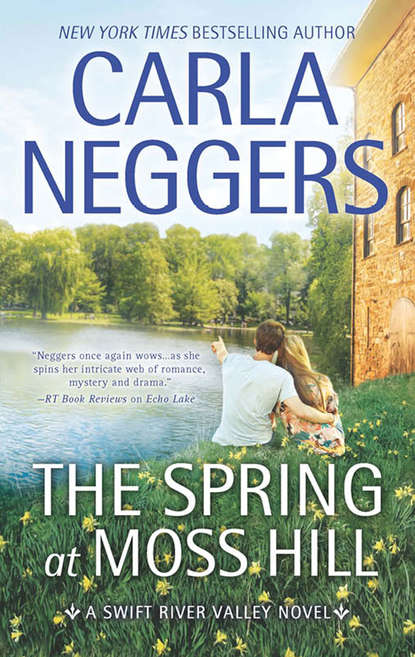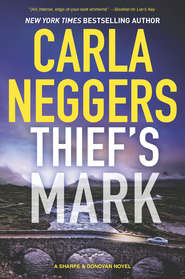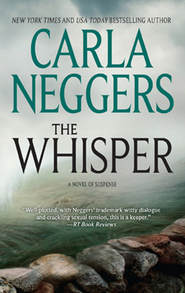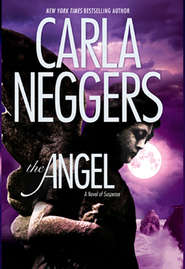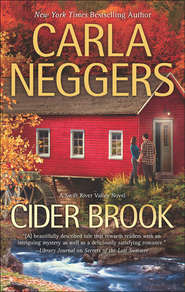По всем вопросам обращайтесь на: info@litportal.ru
(©) 2003-2024.
✖
The Spring At Moss Hill
Автор
Год написания книги
2019
Настройки чтения
Размер шрифта
Высота строк
Поля
“This class isn’t a prison sentence, Daphne. You can bow out at the last minute.”
“Imagine how that would look.”
“Imagine how it would look to drive yourself crazy or drink yourself into oblivion because you keep trying to talk yourself into believing you want to do this thing.”
“I do want to do it.”
He raised his palms in front of him. “I rest my case.”
Daphne finished her martini. She was being ridiculous, second-guessing herself. She’d made her decision. She’d made a commitment to Ruby and Ava. Of course she had to go to Knights Bridge next week. With the day drawing closer, jitters were normal.
She thanked Marty and let him put her drink on her tab. It was a late night for her. Usually she was in bed by ten o’clock.
* * *
When she arrived at her bungalow in Hollywood Hills, Daphne was glad she’d opted to take a cab. Her one martini had gone to her head. She was careful not to stagger, because who knew if the cab driver was taking a video, texting his friends—anything was possible these days. Once she was inside, with the door locked, she felt tears on her cheeks. Oh, good heavens, she thought, was she crying? It had to be the martini.
“You need food.”
She went into her kitchen, hoping she could find something to eat. Her house was only fifteen-hundred square feet, but she loved it. She’d bought it after her last divorce and had it painted a warm sunshine yellow in celebration of her new freedom. She’d decorated the interior in creamy neutrals, with the idea that a man would never live here again. So far, so good on that one.
Hard to believe it had been twenty years.
She discovered hummus and cut-up vegetables in the fridge. She arranged them on a plate, poured herself a glass of water and headed out to the patio, turning on the lights since it was darker than the pits of hell. She checked her chair cushion for spiders before she sat down. She hadn’t become a fan of western spiders in the forty years she’d lived in Southern California.
As she ate her dinner, she watched the turquoise pool water ripple in the light and smelled the roses off to the side of the patio. They were pink and peach, and she could see them from her studio window while she worked. Everything was on one floor—she could grow old here.
Her house wasn’t anything special by Hollywood standards, but it was what she’d imagined when she’d boarded her first bus west all those years ago. Her life wasn’t perfect, and she’d made plenty of mistakes, but she’d done all right. She had nothing to prove to anyone, including herself. That wasn’t what this master class next Saturday was all about.
“Yes, my dear,” she said as she dipped a carrot stick into the hummus. “If only you believed it.”
Did she want Russ to come upon something that would force him to recommend she cancel her Knights Bridge appearance?
She remembered the first time she met him at Marty’s Bar. Rugged, focused, task-oriented and so obviously very worried about his big brother. She had no one to worry about her. Some of that was by her own design. Even now, she could hear her father telling her he was smacking her because he was worried about her.
Damn. She wished she had another French martini instead of carrots, celery, broccoli and hummus.
Her great-great-grandfather’s old mill as a theater...a place for children to come and learn about acting, costume design, lighting...ultimately about themselves.
Can I do this, tie myself to Knights Bridge?
Do I want to?
She inhaled deeply. The ghosts of the past were grabbing her from behind. She tried to shake them off, but they clawed at her, refusing to let go, forcing her back to those early days when she’d first arrived in Knights Bridge as a teenager. She hadn’t lived there long, but her life there—working in the library, living in a cottage on Thistle Lane—had transformed her.
She remembered walking to the mill at Moss Hill one fine spring morning with the full intention of flinging herself off the dam. It was early on after her arrival in Knights Bridge. She figured people would think she’d slipped amid the tall grass, broken glass and debris.
An unfortunate accident befalling the last descendant of the mill’s original owner.
A fitting end to the Sandersons.
She hadn’t jumped. She’d decided the dam wasn’t high enough, and it was too damn risky. What if she just got banged up and lay there alone, no one to find her?
She really hadn’t wanted to die a slow death.
She’d walked back to town. She vividly remembered her annoyance at getting blisters.
It wasn’t long after that little brush with oblivion that she’d started sewing, copying dresses she saw in movies and magazines and dreaming of a different life.
She didn’t want to go back to who she’d been forty years ago. She was Daphne Stewart now, not Debbie Sanderson, the abused, insecure teenager with no money and no prospects.
Four (#ulink_5a8bc704-2fc0-545e-b3cc-ac576b956f38)
Russ collected his rental car in Boston. He’d reserved an all-wheel-drive car because he didn’t know the terrain in Knights Bridge, and potholes and rutted dirt roads were a distinct possibility. And because Loretta had warned him. Get a good car. I’m always in fear of wrapping myself around a tree when I’m out there.
He had a text waiting for him when he got behind the wheel; it was from Marty. You there?
He typed an answer. Yep. Why are you up?
Working on a screenplay. On a roll. Stay in touch.
Will do. Get some sleep for me.
Russ tossed his phone on the seat next to him and started the car. Marty might be working on a screenplay, but he’d be up anyway, waiting for his brother to land safely in Boston. Russ felt like a heel for not texting him sooner, but Marty would never say anything. His fears, he’d told Russ more than once, without getting specific, were his burden. He would deal with them in his own way.
Gritting his teeth, Russ drove out of the airport and made his way through a tunnel and onto Storrow Drive. With Boston’s notoriously poor signage and the unfamiliar roads, he regretted not using GPS to get him to Knights Bridge. He’d slept little on his flight. Nothing new there. At wheels up, he inevitably saw Marty in his hospital bed ten years ago, with morphine keeping the pain at bay.
Your brother sustained severe injuries but we think he’ll survive.
Think? You’re not sure?
Russ had turned then, seeing his mother in the doorway. She’d had no color except for her own bruises and lacerations. But she was on her feet, not on morphine, not fighting for her life—not her physical life, anyway.
Russ... I can’t do this. I can’t.
He’d thought she was talking about her older son. He’ll make it, Mom. Marty’s strong.
Your dad was strong and he’s dead.
I know. I’m sorry.
Marty’s an adult. We’re not obligated in any way. It’ll be months...months and months...
Mom?
Her dark blue eyes had fastened on Russ, and he’d realized she was talking about Marty and his recovery, and how she couldn’t do it. She couldn’t be there for him. She had sustained relatively minor injuries in the helicopter crash that had killed her husband, the father of her two sons, and at that moment, realizing the loss she’d suffered, the months of rehab ahead of Marty, she wished the crash had killed him, too.
Maybe not all of her had wished it. Maybe only a part of her, traumatized and grief-stricken, had wished it. Maybe she’d believed she couldn’t get through it—couldn’t cope with seeing her son in pain, the ups and downs of a long, uncertain recovery, and her shortcomings would hurt his chances of getting back to a hundred percent.





